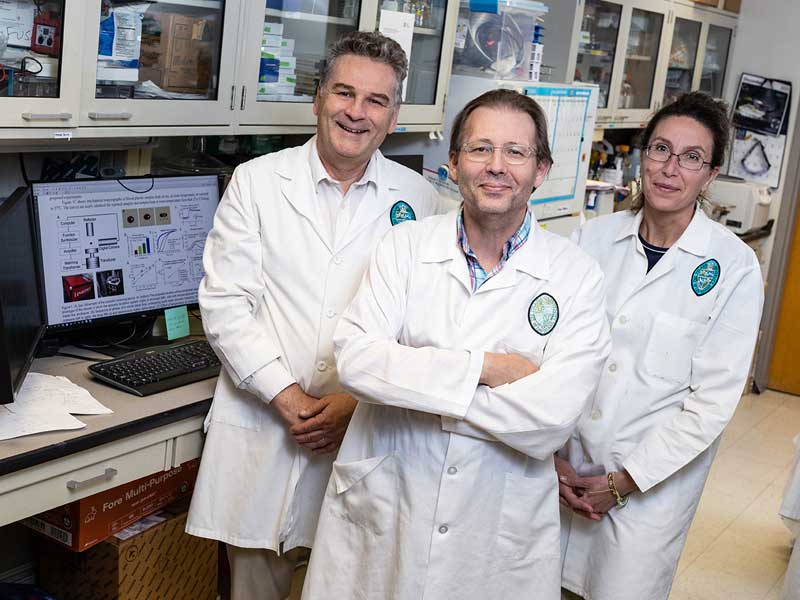Could some of those who died from COVID-19 and other infectious diseases have been saved by a diagnosis that predicts how severe their cases will be and provides timelier treatment?
A team of engineers and doctors at Tulane University hopes to answer that question with the development of new technology designed to detect severe COVID complications such as thrombosis, a condition in which blood clots block veins and arteries.
“Many patients who died from COVID-19 and other infectious diseases developed severe thrombotic complications shortly after disease symptoms were manifested,” said Damir Khismatullin, PhD, an associate professor of biomedical engineering in the Tulane School of Science and Engineering. “Their lives could be saved by predictive diagnosis of disease severity and timely treatment. However, tests that effectively predict the severity of infectious diseases are not available yet.”
Khismatullin and his team recently received a nearly $600,000 Trailblazer Award from the National Institute of Biomedical Imaging and Bioengineering to take on research that will lead to such tests. Trailblazer Awards are given to new and early-stage investigators to pursue research programs for which there are minimal or no preliminary data.
Khismatullin’s team includes co-investigators from Tulane University School of Medicine, infectious disease specialist Dr. Dahlene Fusco, an associate professor, and clinical pathologist Dr. Arnaud Drouin, an adjunct assistant professor.
The goal is to develop a diagnostic test that uses a drop of blood from a finger prick – a test that could be performed at a hospital, in a clinic or at home.
Many people died from COVID-19 because of the rapid development of complications caused by the so-called immune system-induced cytokine storm during which the body releases too many inflammatory proteins called cytokines into the blood too quickly. Symptoms include high fever, severe fatigue and sometimes organ failure.
A cytokine storm can lead to abnormal blood clotting through the body’s blood vessels. For COVID-19 patients, it can lead to complications that contribute to respiratory difficulties and ultimately cause the patient’s death.
Damir-Khismatullin-RC1_9894_600.jpg

Tulane faculty members, from left, Dr. Arnaud Drouin, Damir Khismatullin, PhD, and Dr. Dahlene Fusco are leading an interdisciplinary team of researchers working to develop a diagnostic test that can detect severe complications from COVID-19 and other infectious diseases. (Photo by Rusty Costanza)
Original source can be found here.

 Alerts Sign-up
Alerts Sign-up